ICE arrests more than 100 people across California's sanctuary cities
ICE arrests more than 100 people across California’s sanctuary cities
About 125 people living in California's sanctuary cities were arrested and are now poised for deportation, according to a joint announcement Wednesday by the Department of Homeland Security and U.S. Immigration and Customs Enforcement. Andre Senior reports
DALY CITY, Calif. - About 125 people living in California's sanctuary cities were arrested and are now poised for deportation, according to a joint announcement Wednesday by the Department of Homeland Security and U.S. Immigration and Customs Enforcement.
The arrests cap a weeklong sanctuary city enforcement operation, from Sept. 18 to Oct. 3, focused on undocumented immigrants with prior felony convictions, said ICE spokesman Jonathan Moor.
But the "sanctuary op" was immediately criticized by immigrant rights activists and Democrats as a pre-Election Day, fear-mongering publicity stunt, and a dangerous move in light of putting more people in detention during the coronavirus pandemic.
The arrests were largely made in Los Angeles, Daly City and San Jose. Moor said there were just six arrests made from the San Franciso office. Similar operations were also conducted around the country.
Moor said that everyone who was taken into custody had a prior conviction for crimes such as murder, rape, robbery, domestic violence and multiple DUIs.
When asked, Moor said that no one who solely had an administrative violation, entering the country illegally, was arrested during "Operation Rise." An official news release put that number at 95%.
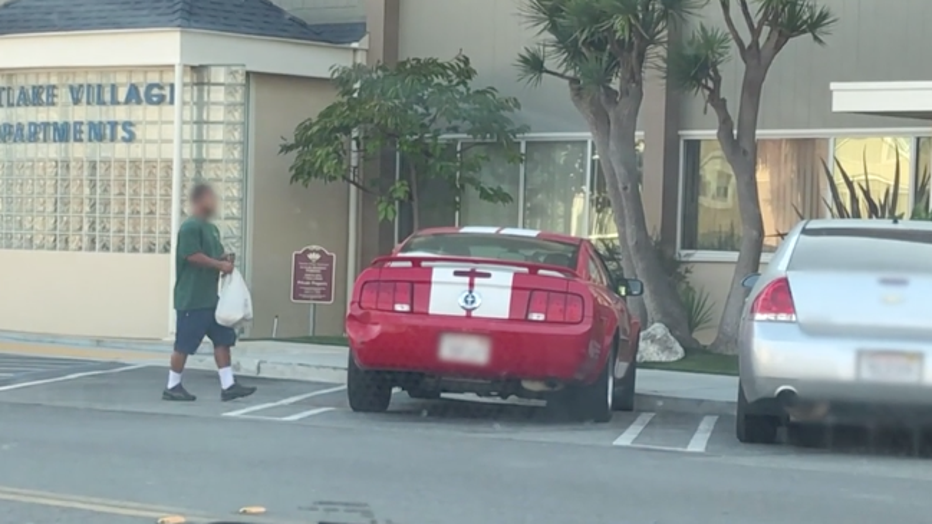
A federal agent arrests a man in Daly City on multiple DUIs on Sept. 28, 2020 as part of a sanctuary city operation. Courtesy: ICE
ICE pulled out a few examples of people they arrested last month:
- A 29-year-old man from Guatemala was arrested in Daly City in front of the Westlake Village Apartments for multiple DUI convictions.
- A 40-year-old man from El Salvador convicted by the Los Angeles Superior Court of first-degree murder in November 2009. Despite an immigration detainer lodged with the Los Angeles County Jail, the jail declined to honor the detainer and instead released him. However, he is now in ICE custody pending removal proceedings.
- A 50-year-old man from Mexico convicted by the Los Angeles Superior Court of conspiracy to commit second-degree murder in June 1994. He had a final order of removal and was deported back to Mexico the same day.
The federal agencies characterized their operation as one of safety and free of politics. But their statements were aimed at progressive politicians.
“Unfortunately, certain local politicians, including many in California continue to put politics over public safety," Acting Secretary Chad Wolf said in a statement. "Instead of fulfilling our shared mission to protect our communities, they would rather play politics with the law by enacting so-called Sanctuary City policies to the detriment of our country’s safety."
Tony H. Pham, acting ICE Director, said that California’s sanctuary laws protect and shield criminals "harboring them in our communities where they can potentially re-offend and revictimize.”
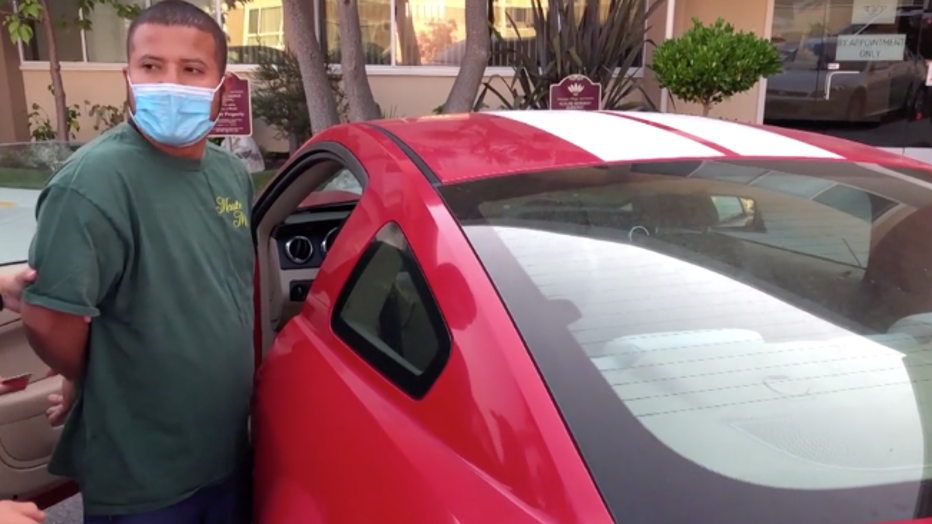
A 29-year-old man from Guatemala was arrested in Daly City in front of the Westlake Village Apartments for multiple DUI convictions. Photo: ICE
Upset with the raids, House Judiciary Subcommittee on Immigration and Citizenship Chair U.S. Rep. Zoe Lofgren (D-San Jose) wrote a letter to ICE on Wednesday, denouncing the operation -- especially that it was conducted during a pandemic.
While the video ICE provided of the arrests clearly showed agents and those arrested wearing masks, Lofgren pointed out that there should be an effort to reduce detention centers, not fill them up.
“I am deeply disturbed that ICE is spending government dollars and putting lives at risk in furtherance of what is described as a political messaging campaign, when the agency has failed to take adequate measures to protect detainees, and the surrounding communities, from COVID-19,” Logren wrote.
The arrests also did not sit well with immigrant rights groups.
First, Almas Sayeed, deputy director of programs at the California Immigrant Policy Center, said she doesn't believe that ICE only arrested those with felony convictions.
Second, she said that sanctuary cities already are supposed to share information about violent offenders with ICE, and in fact, she believes that many local sheriffs "overshare" information that they shouldn't.
And finally, Sayeed said, there are ways to arrest people without conducting raids that "terrorize the entire neighborhood."
She added: "ICE is engaging in scare tactics to exacerbate the administration’s purposeful climate of fear, harming families and fracturing communities. As the administration trades in fear-mongering on the eve of an election, advocates in California will continue the work to defend and protect immigrant communities."
Cities, states and jurisdictions with sanctuary policies that don't allow coordination with ICE typically refuse to hold immigrants in jail longer than they are required to so that ICE officers can take them into custody. Such cities also do not help ICE by checking the legal status of suspects who are arrested or detained for minor offenses.
Sanctuary cities also do not alert federal immigration agents of an inmate’s release from a county jail — unless the information is already available to the public, or if the person has been convicted of any of the 800 offenses outlined in a 2013 state law, the Trust Act.
That list includes serious or violent felonies, arson, registered sex offenses and domestic violence. Many other crimes are on the list, including nonviolent drug charges and “wobblers,” criminal offenses that can be charged under California law as a felony or misdemeanor. In those cases, cooperation with federal immigration officials is allowed.
Progressive activists take issue with many of these "wobblers," and say the list of offenses is too long and nebulous. And they also take issue with the entire criminal justice system and how it negatively affects poor people and those of color, wondering if those convicted are actually guilty or just couldn't afford a proper defense.
The sanctuary law also permits state prison officials to continue working with federal immigration agents on deportations and immigration agents are still allowed to enter county jails to question immigrants.
As for undocumented immigrants being more prone to crime and recidivism?
Studies have found that sanctuary policies either have no effect on crime or that sanctuary cities have lower crime rates and stronger economies than comparable non-sanctuary cities.
For example, a 2017 study by the Cato Institute, a libertarian research group, found immigrants in the country illegally were 44% less likely to be incarcerated than people born in the U.S.
In addition, the Marshall Project found crime in the U.S. dropped more often than it rose even as immigrant populations grew. In Oakland, where city leaders have fought President Trump’s call for deportations, and in Orange County, where county leaders support it, immigration increased while crime fell, the research showed.
Last week, the Washington Post noted that two officials with knowledge of the "sanctuary op" described it as more of a political messaging campaign than a major ICE operation.
The Post pointed out that ICE already concentrates on immigration violators with criminal records and routinely arrests them without much hoopla.
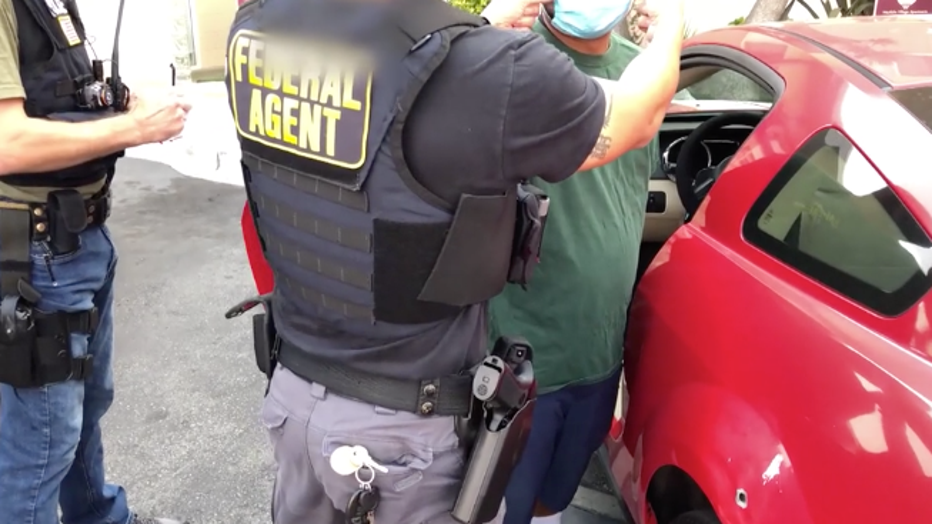
A federal agent arrests a man in Daly City on Sept. 28, 2020 as part of a sanctuary city operation. Courtesy: ICE
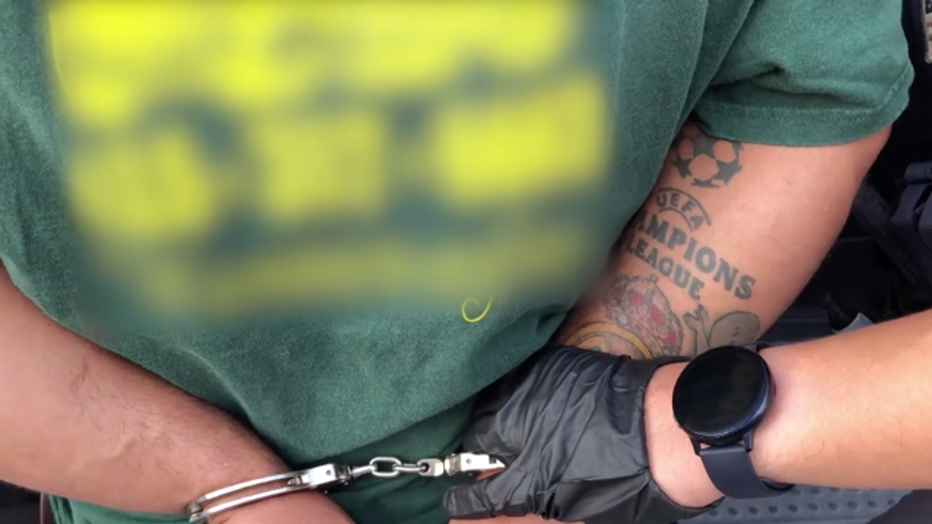
A 29-year-old man from Guatemala was arrested in Daly City in front of the Westlake Village Apartments for multiple DUI convictions.
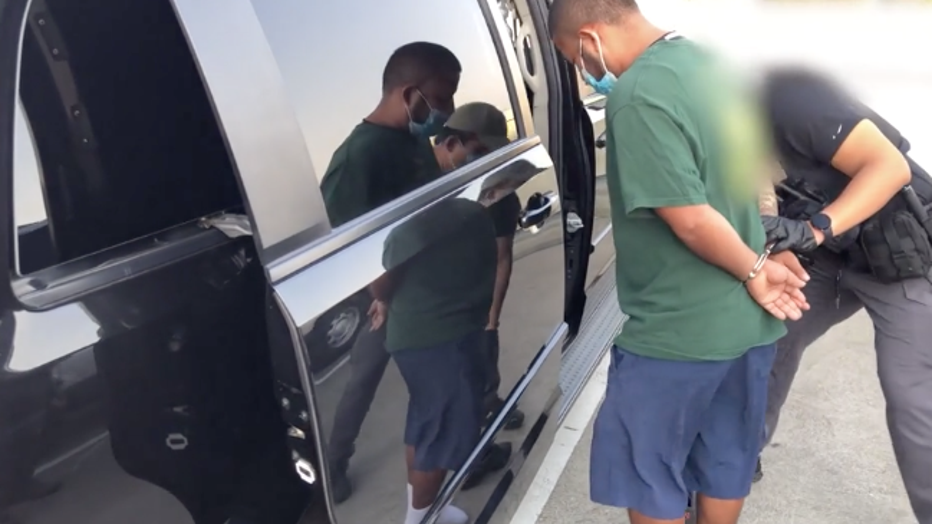
A 29-year-old man from Guatemala was arrested in Daly City in front of the Westlake Village Apartments for multiple DUI convictions.
Lisa Fernandez is a reporter for KTVU. Email Lisa at lisa.fernandez@foxtv.com or call her at 510-874-0139. Or follow her on Twitter @ljfernandez

